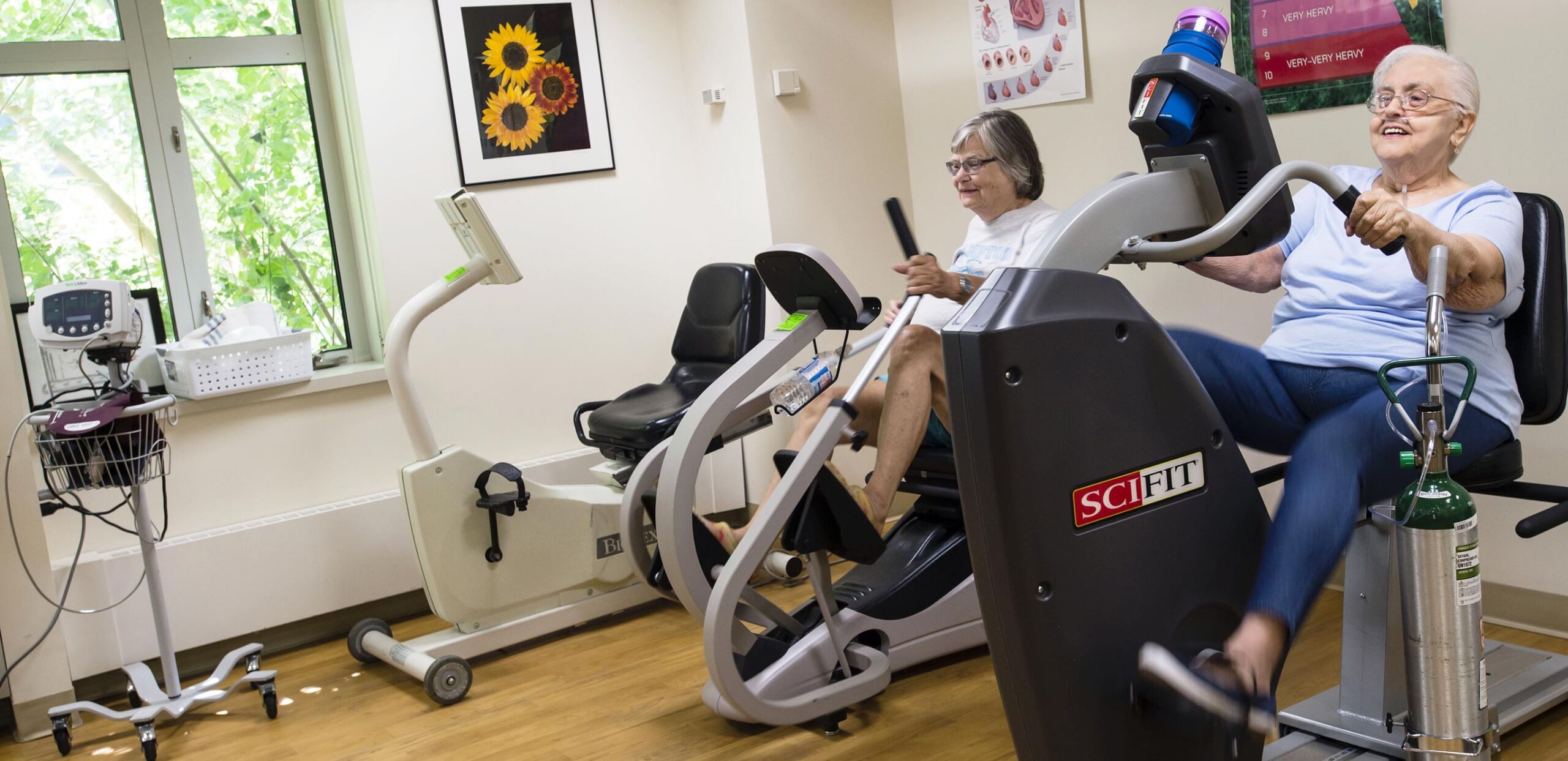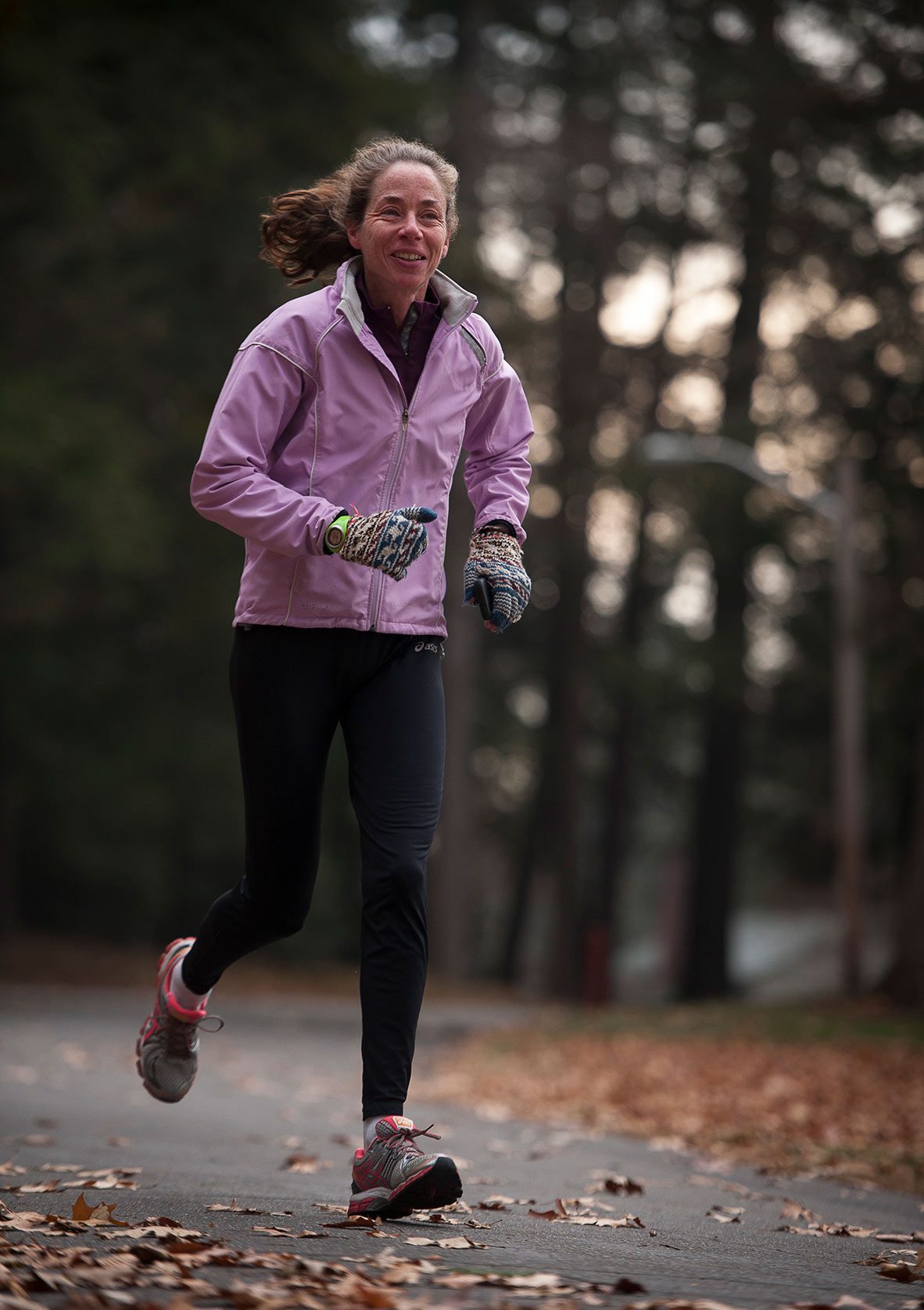Cardiopulmonary Rehabilitation Program
Getting back to active.
The Cardiopulmonary Rehabilitation Program at Cooley Dickinson Hospital provides monitored, supervised exercise and risk reduction programs to people who have cardiac and pulmonary medical conditions. Objectives for cardiac patients include:
- Risk reduction for coronary artery disease including stress management
- Improve daily function and stamina
- Dietary counseling, exercise instruction and medication review
- Less symptoms and fewer complications
Pulmonary rehab is a medically supervised program for people who have chronic lung diseases. Pulmonary Rehab goals include helping people:
- Have less symptoms and fewer complications
- Improve their daily function
- Be as independent as possible
- Have a better quality of life
Objectives for patients with chronic lung disease also include:
- Improved exercise capacity through overall conditioning
- Improved knowledge of pulmonary hygiene
- Signs and symptoms of infections and proper medication use
Outpatient services are available Monday through Friday. Patients may be referred by their primary physician, consulting cardiologist or pulmonologist. We typically see patients who have had heart attacks, Angioplasties, Stent Placement, Angina, and Coronary Artery Bypass Surgery, or have been diagnosed with heart failure. Insurance companies will also cover patients who have had valve replacement or repair surgery. We also see patients with chronic lung problems such as Emphysema or chronic obstructive pulmonary disease.
A physician’s order and insurance authorization are required to attend our cardiac or pulmonary rehabilitation program. We accept most insurance plans as well as Medicare and Mass Health arrangements. To make an appointment, call 413-582-2404 or send a fax to 413- 582-2937. We look forward to working with you.



